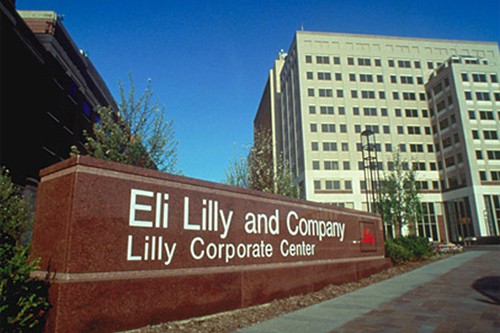
Lilly is celebrating positive data from a study of its necitumumab candidate in a non-small cell lung cancer (NSCLC) trial, which sets it on course for regulatory submissions in 2014.
Necitumumab is a fully human antibody targeting the epidermal growth factor receptor (EGFR) and was tested in combination with gemcitabine and cisplatin as a first-line therapy for metastatic (stage IV) squamous NSCLC in the trial.
Questions were raised about the viability of the project last year after Lilly announced that its development partner for the project in North America and Japan, Bristol-Myers Squibb (BMS), was pulling out of the collaboration after an acrimonious lawsuit, with the result that Lilly assumed sole worldwide development and commercialisation rights.
Added to that, in 2011 there were reports of side effects – specifically a risk of blood clots – which halted a trial in non-squamous NSCLC and led some analysts to all but write off the prospects for necitumumab.
Assuming sole ownership is starting to look like a great development for Lilly, however. If approved, necitumumab will complement the company’s Alimta (pemetrexed) product, which is already a mainstay of first-line therapy for non-squamous NSCLC and brought in sales of $567m in the first six months of this year.
Meanwhile the company also has a second-line NSCLC candidate called ramucirumab in late-stage testing, which could round out the franchise. This drug targets vascular endothelial growth factor receptor 2 (VEGFR2) and is already filed under a rolling biologics licence application (BLA) in the US as a treatment for advanced gastric cancer.
Lilly did not reveal specific data from SQUIRE, but said in a statement that patients on necitumumab plus chemotherapy had an increased overall survival (OS) rate compared to those on chemotherapy alone.
The data indicates that the risk of blood clots has not wholly receded, however, with Lilly noting that “serious, but less frequent, adverse events occurring more often on the necitumumab arm included thromboembolism”.
Nevertheless, the data “represent a potential advance in treatment for patients with squamous NSCLC, which is a difficult cancer to treat,” said Richard Gaynor, VP of product development and medical affairs at Lilly Oncology.
“If approved, necitumumab could be the first biologic therapy indicated to treat patients with squamous lung cancer.”
Necitumumab has a similar mechanism to Lilly/ Merck KGaA/ BMS’ Erbitux (cetuximab), which failed to make the grade as an NSCLC treatment but is approved to treat colorectal cancer and squamous head and neck cancer.
Approval would provide a welcome boost for Lilly, which is weathering the loss of marketing exclusivity for a number of top-selling drugs, including the antidepressant Cymbalta (duloxetine).
Meanwhile it has suffered a string of setbacks in its pipeline over the last couple of years, including failed trials in Alzheimer’s disease for solanezumab and LY2886721 as well as for lymphoma drug enzastaurin, schizophrenia candidate pomaglumetad and tabalumab for rheumatoid arthritis.




